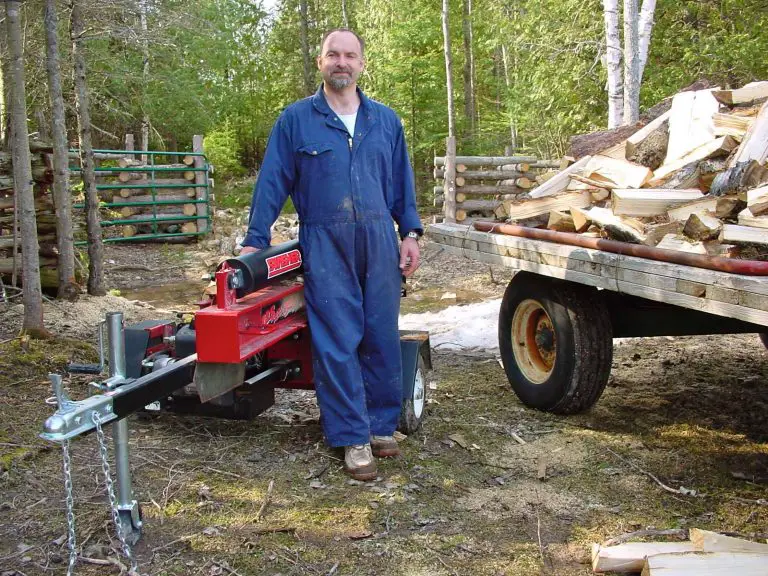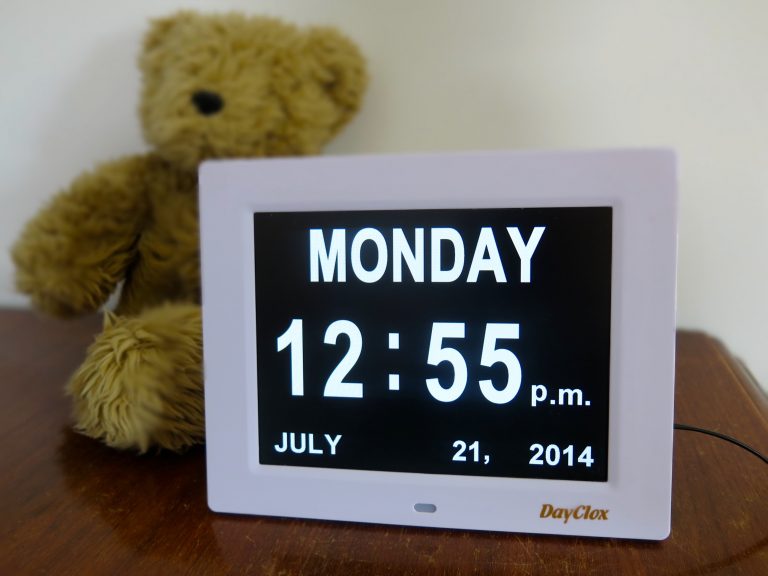When dementia strikes, a sense of helplessness comes with it. I know because we experienced that for a time in my extended family. But sometimes the best way to combat helplessness is to do what you can, when you can, for as long as you can, the best way you can, even if you can’t win in the end. Fighting life’s battles like this isn’t easy, and as the reality of dementia unfolded with my father-in-law, I was reminded how practical changes to the home can make a worthwhile difference to life. These practical changes won’t fix the reality of dementia, they won’t let anyone beat the disease, but they will make the challenge a little easier to live with.
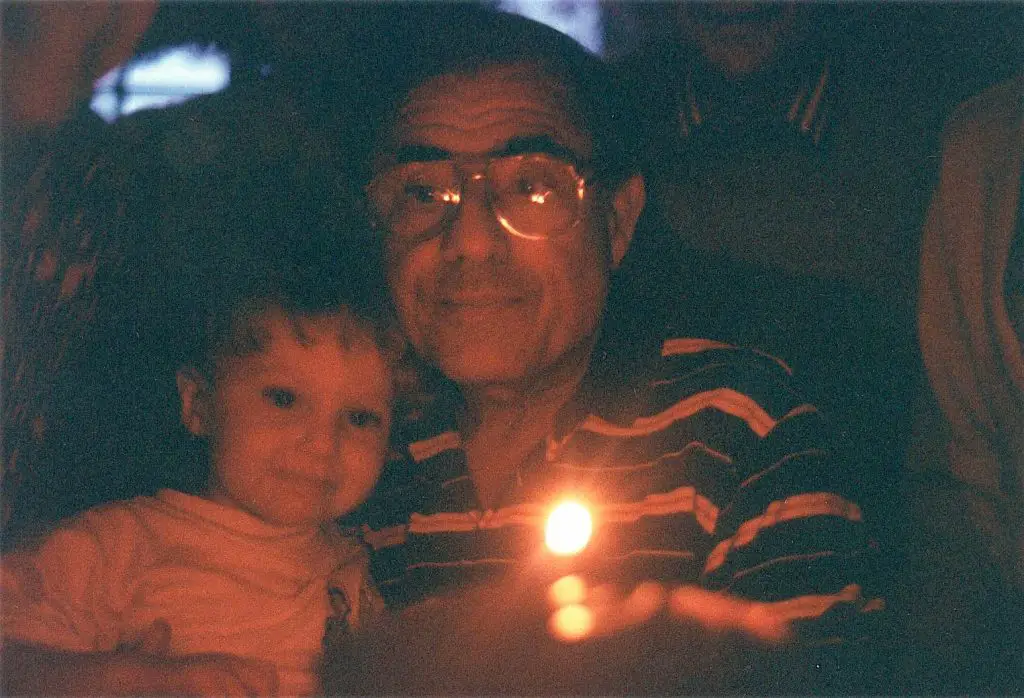
I first met the man who would become my father-in-law in 1981. He’d come to Canada with his family as general manager of the local branch of a multi-national corporation, and even to an 18 year-old, motorcycle-riding guy with other things on his mind, I could see this guy was capable and decisive. He was also a bit intimidating at first, especially since I was interested in one of his daughters.
Our Dementia Journey
As I grew older and became this man’s son-in-law, we’d sometimes sit around the barbecue sipping something cold, me asking questions about life and business, him answering. Fast-forward a few years and all the answers were gone. The man who led successful corporations across the Americas could no longer remember the names of his kids. Years of jogging and healthy living meant he was in great physical shape except for his brain. Few things are sadder than this.
The thing about life as usual is that it creates the illusion everything will go on as it always has. Dementia is one of many things that changes life dramatically, though not at first. Since the onset of the condition is usually gradual, it allows the luxury of hope that it’s not what you think it is. One small blessing is the way the slow advance gives you time to modify your home (and heart) to make the situation more manageable for a while.
My wife was the first to mention that something wasn’t right with her dad. There was a certain uncharacteristic hesitation now and then in his responses, the occasional simple word that he couldn’t find, a moment of reduced facial expression. If you’ve seen dementia take hold, you know the early signs. Dementia is one of countless ways our mortality comes home to roost. As painful as it is, there are practical things you can do around the house to make life with dementia safer and a little less troublesome for everyone. DIY modifications really can make a difference, even relatively minor ones.
Dealing With Dementia: Practical Tips to Help
Keyless entry locks and door hardware: Installing a keyless entry system for exterior doors is the only practical way to give access to trusted caregivers who help manage someone with dementia. Keyless entry is also essential if you subscribe to an emergency home assistance service, but sometimes you need to restrict access to doors inside your home for the protection of the one with dementia. In cases like these a sliding bolt latch with a combination lock built in is the easiest way to restrict access to dangerous interior doors such as those leading downstairs or outside. Few people know about sliding combination bolts but they’r effective and easy to install.
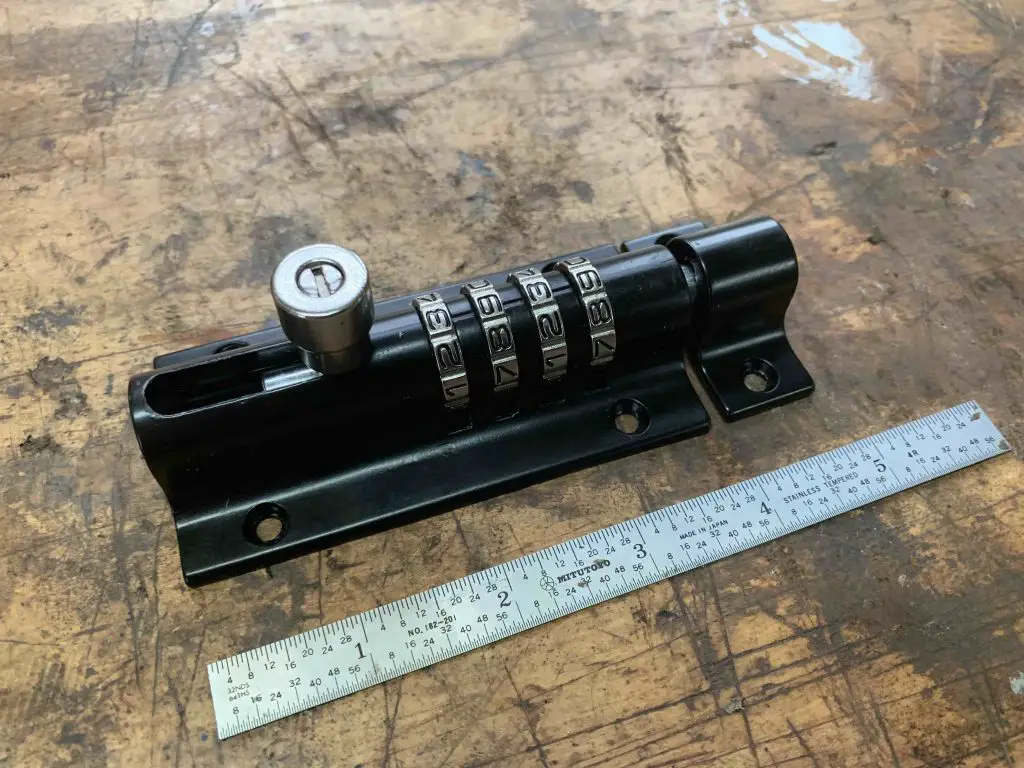
Easy-to-read clocks: Time is one of the important ways we orient ourselves to the world, so consider getting a digital clock with a big and simple read out. The best desk and table clock I know of for people with dementia includes a very large, digital face and include a battery backup. This last feature is worthwhile because it saves you the trouble of resetting the clock every time there’s a power flicker.
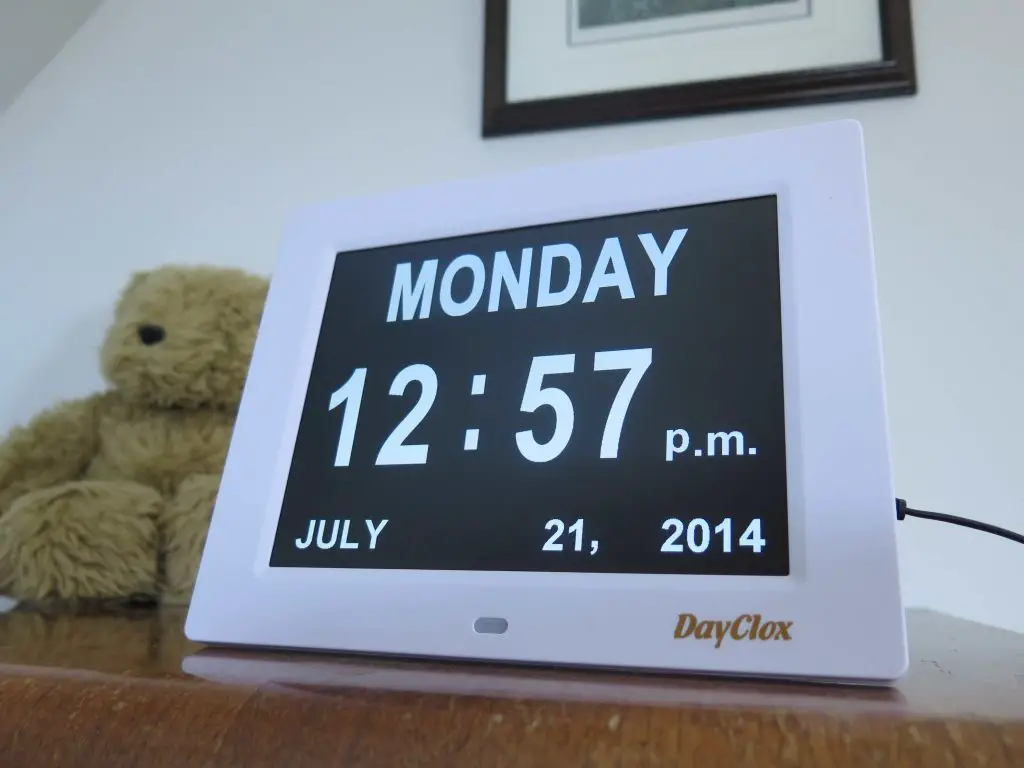
Make hot water safer: Turn the temperature of your hot water heater down to 120ºF to reduce the burn hazard. This is easy to do on both electric and gas-fired water heaters and it makes a big difference. A mere six second exposure to 140ºF water will cause 3rd degree burns, while it takes 5 minutes of exposure to 120ºF to cause the same injury. Taps and shower faucets can also be fitted with individual controls that limit water temperature only at those fixtures.
Beware the Wandering Hazard
Be educated about the risks of going missing: About 60% of people living with dementia become lost at some point, and there’s a great risk of serious injury if they aren’t found within 24 hours. Where I live in Canada, the Alzheimer Society of Ontario has been proactive on this front with their Finding Your Way® program. It’s a resource hub for people living with dementia, their families, and care partners to find identification forms, online learning, and information on tracking devices that can help prepare for, and prevent, missing person events. You can learn from these resources no matter where you live, but if you’re in Canada, check out your local chapter of the Alzheimer’s Society of Canada for more programs in your province. Similar organizations are found everywhere.
As dementia reverses roles in families everywhere, it’s helpful to remember that there are things we can do to help when our loved ones can’t help themselves any more. And isn’t this one of the best gifts you can give anyone heading down this road?








